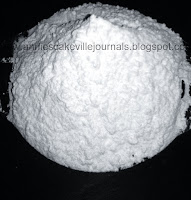Cooking and baking have been the traditional methods of food preparation since time immemorial before modern tools for measurements were invented. Grandmothers, great grand-mothers and the mothers before them have cooked and baked just by using their eyes, tongues and noses to feel for when the dough is well kneaded and the right time to get it out. They know when the dough feels and looks right.
Which brings us to question whether there is really a need for precision and accuracy in measurements during baking as today we have to follow a recipe just as it is, with the right amount of this and that in order to get a good result.
In the home kitchen, there are two kinds of people, the cooks and the bakers. As for cooks, they are more flexible in the use of their ingredients and proportions while on the other hand, the bakers are more precise in their measurements, temperatures and techniques.
I love cooking as well as baking but I find that cooking allows me the liberty to play with my recipe, to alter it when I like and add the ingredients at a time I like and viola! It comes out great - that's spontaneity as it affords me the ability to conjure things up based on what I have available. But the con of this is that I may not achieve the same result as the same food was previously made. Baking on the other hand makes me take much more consideration into what I put together as they go in ratios, 250g of flour here to 200g of sugar there and 500g of butter in the mix. It calls for precision and accuracy. When baking you become a mathematician as you have to make proper conversions and calculations in order not to stray from the recipe and get something totally different.
In order to fully understand the science behind the art of baking, I began my research by going into the internet world to further gain more knowledge about how these basic ingredients work to put together a well structured cake.
I stumbled upon an article by Kelly Stewart about Kitchen chemistry (is baking a science?). According to her, the secret to a successful baking is all in the way the ingredients mix up. Which then led me to source for more information as to how each baking ingredient function in the process of baking to further prove how baking is a science.
 FLOUR : There are different types of flour used in baking but the most common ones are the owns made with wheat and its the major types used in cake making. Flours are the building block of most baked foods and that makes it the most fundamental ingredient in the baking process.
FLOUR : There are different types of flour used in baking but the most common ones are the owns made with wheat and its the major types used in cake making. Flours are the building block of most baked foods and that makes it the most fundamental ingredient in the baking process.The types of flour includes;
- Whole Wheat flour: made from the whole kernel of wheat
- All purpose flour: bleached white flour made from the endosperm of wheat. It contains lots of protein and it is used for most pastry.
- Cake flour- its bleached white flour with the lowest amount of gluten
- Bread flour- bleached white flour higher in protein
- Gluten-free flour- its made from non-wheat sources such as Rice, Tapioca, Corn and Potatoes
TO BE CONTINUED...
check out the next post for the continuation of this article.!
Comments
Post a Comment